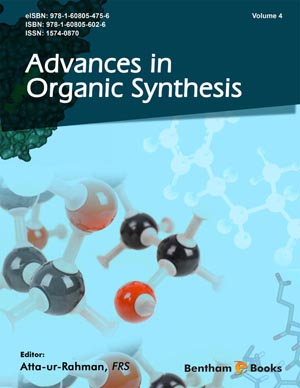Abstract
Metal-Organic Frameworks (MOFs), as one type of famous porous material
with many advantages (good crystallinity, design ability, facile modification and
flexibility), show a wide range of applications in gas adsorption and separation, ion
exchange, fluorescent recognition, nonlinear optics, molecular magnets and
ferroelectrics, heterogeneous catalysis, semiconductors, and so on. The research of
MOFs span many disciplines, such as inorganic chemistry, organic chemistry,
coordination chemistry, supramolecular chemistry, crystal engineering and materials
science. The design, synthesis, and applications of MOFs have attracted tremendous
attention in broad scientific areas. Therefore, it is worth releasing a professional
publication to elucidate so many related issues. In this chapter, we start with the
introduction of MOFs, including the definition, classification, concepts, terminologies,
and some well-known research. Then we carefully summarize the design and synthesis
of MOFs from three aspects of raw materials, synthetic methods, and design strategy,
aiming to get the goal of controllable syntheses of MOFs. Following this, we report the
developments and applications of MOF materials in adsorption and separation, organic
catalysis, luminescence, and drug delivery. Finally, we briefly outline challenges and
perspectives of MOF materials, and provide some promising research subjects in this
area.
Keywords: Controllable Syntheses, Crystal Engineering, Long-range Ordered Pores, Properties.






















